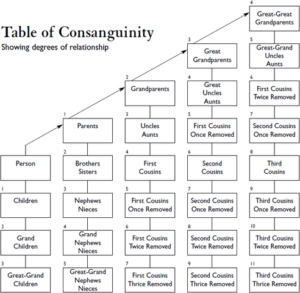 WHAT IS KINSHIP CARE?
WHAT IS KINSHIP CARE?
In Maryland, Kinship Care is designed to preserve family ties by helping when possible with the needs of children, the biological parents, and the relative providing 24 hour care, 7 days per week to the child. There are two categories of Kinship Care: Formal and Informal.
WHAT IS FORMAL KINSHIP CARE?
Formal Kinship Care happens when a child has come to the attention of the State and is now in the custody of the State but is placed with a relative for their care.
WHAT IS INFORMAL KINSHIP CARE?
Informal Kinship Care is when a child’s parent(s) voluntarily place the child in the care of a relative by blood or marriage. Legal custody is not required. For instance, a parent may voluntarily place the child in the care of a parent or sibling.
WHY KINSHIP CARE RATHER THAN FOSTER CARE OR ADOPTIONS?
The Maryland Department of Human Resources recognizes that children belong with families, especially their family of origin when possible. Many grandparents and relatives are becoming kinship caregivers and are taking care of children whose parents are unable or unwilling to raise them.
There are many reasons that a parent may be unwilling or unable to care for their child, including:
- abandonment by parent
- death
- incarceration
- serious illness
- substance abuse
- military duty
WHO QUALIFIES TO BE A KINSHIP CAREGIVER?
A Kinship Caregiver is related by blood or marriage within five degrees of consanguinity or affinity to a child who is in your physical care. A kinship caregiver must be 18 years of age.
WHAT IS FIVE DEGREES OF CONSANGUINITY OR AFFINITY?
Here is a useful chart. Thank you to:
By Sg647112c – Own work, CC BY-SA 3.0, https://commons.wikimedia.org/w/index.php?curid=18790549

IS THERE ANY HELP AVAILABLE FOR KINSHIP CAREGIVERS?
Yes. If the kinship caregiver is a Maryland resident, he/she can apply on behalf of the child for cash assistance. This kind of assistance is a “child only” grant. The grant is based on the child’s resources only – not the kinship caregiver’s.
Food Stamps can be applied for based upon the household income.
HOW DO KINSHIP CAREGIVERS PROVIDE CONSENT FOR HEALTH CARE?
There is a Consent for Health Care Affidavit that can be filled out so that the kinship caregiver can provide consent for health care for the child. The child can not be in the care or custody of the local Department of Social Services and the kinship caregiver must be able to verify the relationship to the child who is in need of health care services.
To receive this form:
• Call 1(877) 463-3464
• Go to http://dhmh.maryland.gov/Pages/departments.ASPX for
your local health department’s location and telephone number
• Contact your Local Department of Social Services
HOW DOES A KINSHIP CAREGIVER ENROLL A CHILD INTO SCHOOL?
There is an Education Affidavit that can be filled out that allows the kinship caregiver assistance in enrolling the child in school. It will also allow the caregiver to be an advocate for the child in school matters.
To receive the form, contact the child’s school.
IF MY CHILD IS IN KINSHIP CARE WHILE I AM INCARCERATED, WILL I AUTOMATICALLY GET HIM/HER BACK WHEN I AM RELEASED?
Not necessarily. Family reunification will depend upon a lot of factors, not the least of which is your rehabilitation and satisfactory completion of prescribed programs. Once you are released, you will need to follow a plan of action that the court approves. The decision of whether or not your child/children are returned to your custody depends upon what is in the best interest of the child.
However, kinship caregiving will allow your child/children to remain in the support structure of your family and not be legally adopted out.

